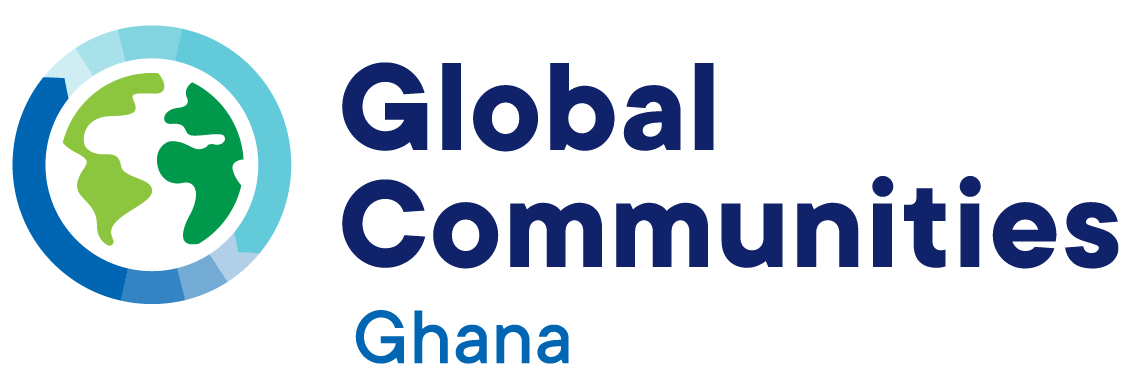News > Blog
USAID WASH for Health Commissions Two Small Town Water Systems at Kalba and Tinjaase in Commemoration of World Water Day
Published 12/12/2022 by Global Communities
The United States Agency for International Development (USAID) through their implementing partner Global Communities, under the WASH for Health project has commissioned two small town water systems in Kalba (Savannah Region) and Tinjase (Oti Region) earlier this March to commemorate World Water Day. The construction of the small town water systems is part of a larger scheme to provide access to potable water under the WASH for Health project, which started in February 2015.
Kalba & Tinjase Water Systems
Each Systems comprise the mechanization of two high-yielding boreholes with photovoltaic (Solar) as the primary source of energy. The output of the borehole is 568m3 per day and 630m3 per day for Kalba and Tinjase, respectively. Each community has 100,000 liters elevated water storage tank at 12meters above ground level. The water is pumped into these tanks, then distributed through distribution lines to public standpipes, all institutions, and some households including households with individuals living with disabilities. The cost of both systems is GH₵5.4 million.
The inauguration of these small town water systems builds on a ten year partnership between the U.S. and Ghana, which advances the U.S. Government’s Water for the World Act and the United Nations Sustainable Development Goal 6 to “Ensure availability and sustainable management of water and sanitation for all.”
| Components of the Water System | Kalba | Tinjase |
| Mechanized Boreholes | 2 with integrated Photovoltaic System (solar system) | 2 with integrated Photovoltaic System (solar system) |
| Elevated Tank Capacity | 100,000 Liters at 12m above ground | 100,000Liters at 12m above ground |
| Total Length of Distribution Lines | 11.4 kilometers | 10.5 kilometers |
| Institutions Connected | 5 (Health Center, 2 Basic Schools, Police Station, immigration) | 3 (CHPS Compound, Basic School, Police Station) |
| Households Connected | 21 | 41 |
| Population | 4,500 | 5,000 |
Access to Water under the WASH for Health Project
Since 2015, WASH for Health has provided access to safe drinking water to communities, health facilities, and basic schools. The project has supported the drilling of 220 boreholes for communities across Ghana, with approximately 60,000 people gaining access to safe water. A total of 53 mechanized boreholes have been handed over to health facilities and basic schools. Four small town water systems, including the two above, have been handed over to deprived communities, namely: Ntankorful, Tuna, Kalba, and Tinjase. Construction works for two more water systems are underway at Mandari and Bonakye in Bole district, Savannah Region and Nkwanta South district, Oti Region.
Background of the WASH for Health Project
WASH for Health is a water and sanitation project initiated in 2015, funded by USAID and implemented by Global Communities. The project works to accelerate sustainable improvement in water and sanitation access and improve hygiene behaviors in some districts in Ghana. WASH for Health is currently present in nine (9) regions: Northern, North-East, Savannah, Volta, Oti, Western, Western-North, Central and Greater Accra. USAID’s activities and strategic partnerships support Ghana’s journey to self-reliance.
About USAID
USAID is the lead U.S. Government agency that works to end extreme global poverty and enable resilient, democratic societies to realize their potential. USAID’s activities and strategic partnerships support Ghana’s journey to self-reliance.
